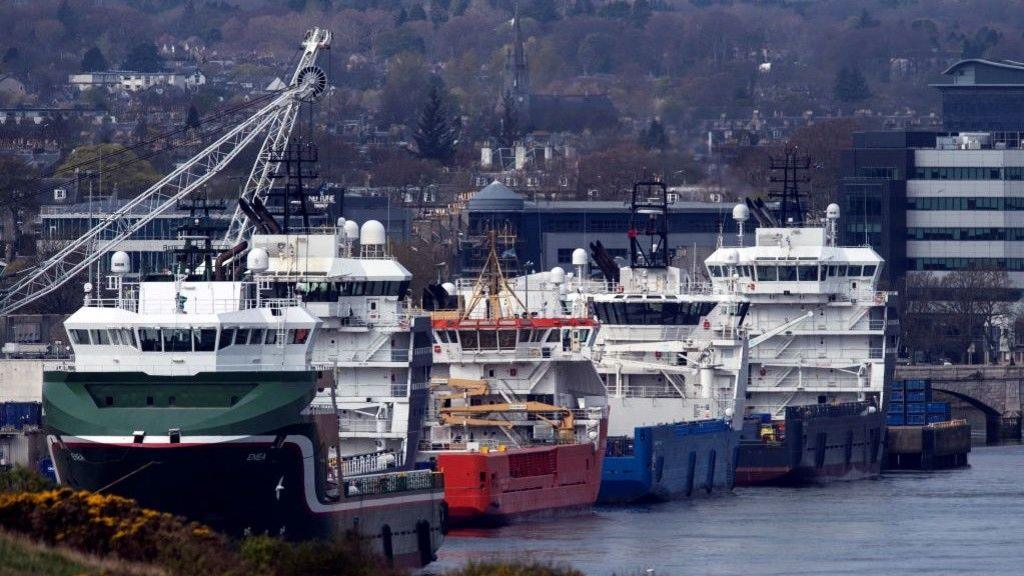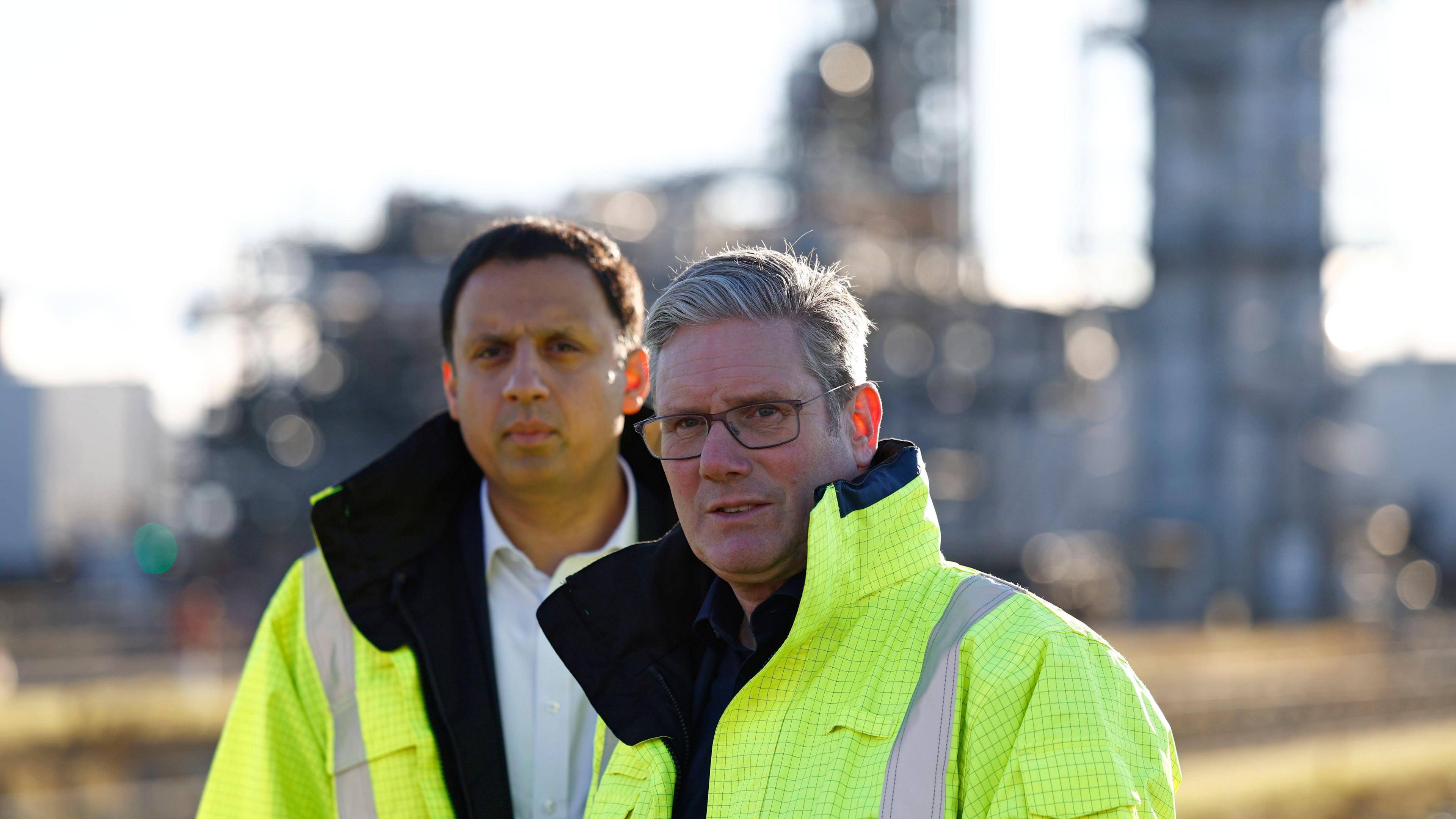GB Energy chairman will be based in Manchester

Juergen Maier is the chairman for the UK government's GB Energy company
- Published
The UK government has confirmed that the chairman of its new state-owned company GB Energy will be based in Manchester.
Prime Minister Sir Keir Starmer previously said the firm would be headquartered in Aberdeen, with satellite offices planned for Glasgow and Edinburgh.
However, as first reported in The Sun newspaper, chairman Juergen Maier will remain based in Manchester.
The government said Mr Maier would regularly spend time in Aberdeen and travel to meet businesses and partners across the UK.
Mr Maier, the former boss of Siemens, was appointed to the role in July.
Some leadership jobs, including three director roles, are being advertised as based in Aberdeen.
GB Energy was one of Labour’s key election pledges and was always planned to be based in Scotland.
The firm will not supply electricity directly to households but it will own, manage and operate clean power projects.
It is hoped that the company could end the UK's reliance on foreign energy.
'Reindustrialising Britain'
The government said it would be led by the "talent and skills of the working people in the Granite City".
Scottish Conservative energy spokesman Douglas Lumsden said it was "an insult" to the north east of Scotland that the chairman would be based hundreds of miles away.
“Common sense should have told Keir Starmer that the person running one of his flagship policies should be on the ground in Aberdeen," he said.
“Instead, this decision sums up how disconnected Labour are from the needs of these communities."
Aberdeen is already home to much of the UK’s oil and gas and offshore wind industries.
Energy security secretary Ed Miliband said the company would help make Britain a "clean-energy superpower" by 2030.
A department for Energy Security spokesperson said GB Energy would be headquartered in Aberdeen to recognise the "expertise, skilled workforce and diversity of projects already in place".
They added: "The chair and board will also regularly spend time in the city, including with the local community and businesses.”
The government pledged to invest £8.3bn into the company over the course of this parliament, which is expected to be raised through a windfall tax on oil and gas firms.
Labour previously said it would not issue new oil and gas licences, but has also said it would not overturn existing permits.

Plenty of people commute to work. Plenty of senior executives commute long distances. Big deal, you might think. But Great British Energy comes with an additional level of scrutiny because of the politics surrounding it.
In opposition and in power the Labour party has made much of its promise to root the organisation in Scotland, even though at times it has struggled to articulate exactly how GB Energy would work.
In Aberdeen, therefore, questions about where the big boss is based feed into wider scepticism about the UK government's plans for the North Sea.
In August, Steve Bowyer, North Sea general manager of oil and gas producer, EnQuest, told me "resources, key equipment, drilling rigs and personnel" were already leaving the area because of high taxes, adding that his firm would be watching chancellor Rachel Reeves' budget "very closely."
Many in the industry are unhappy about Ms Reeves' plan to increase the headline tax rate on energy firms to 78 per cent, external. Some lobbyists have been trying to persuade her to water down a commitment to remove tax breaks for investment which the Treasury has called “unjustifiably generous.”
But the chancellor doesn't just have those firms to consider. She must also weigh up the potential impact on the transition to renewable energy, on consumer bills, on UK energy security and on climate change.
Her statement could tell us quite a bit about Labour's priorities in office.
- Published24 September 2024

- Published3 September 2024

- Published31 May 2024
